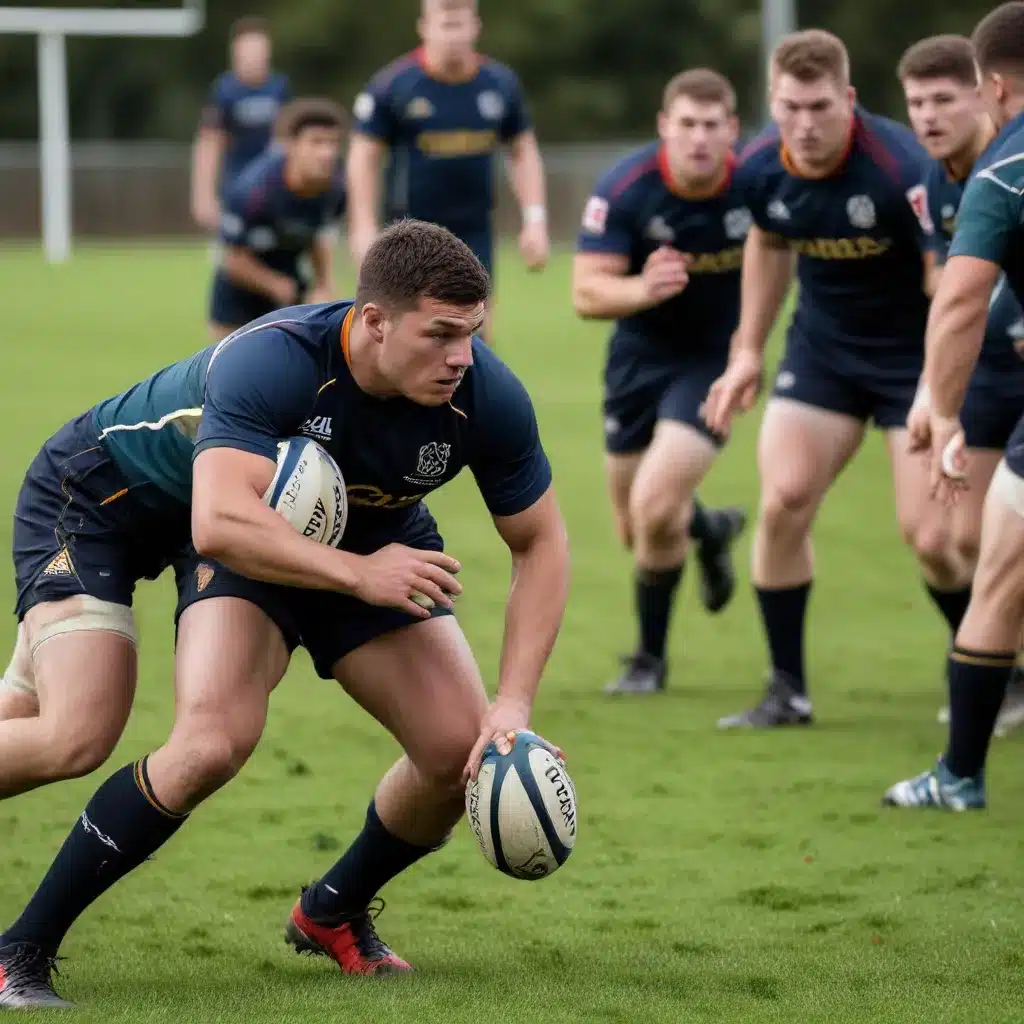
Rugby Defensive Fundamentals
As a seasoned rugby professional, I know that defensive awareness is critical to success on the pitch. Rugby is a sport of constant motion, rapid decision-making, and the need to process a wealth of visual information in real-time. Developing strong defensive skills requires honing both your physical abilities and your mental acuity. At the heart of this is building exceptional vision and anticipation.
Understanding rugby’s defensive principles is the first step. Effective defense is all about reading the game, recognizing patterns, and predicting your opponents’ next moves. Defenders must be alert to threats from all angles, quickly identifying openings and dangers as they unfold. Whether you’re a forward, a back, or a specialist in the set piece, your ability to see the bigger picture and stay one step ahead of the attack is what will make you a standout defender.
The importance of defensive awareness cannot be overstated. In a sport where split-second decisions can make the difference between a try or a turnover, having the vision and anticipation to react appropriately is paramount. Defenders who can quickly process visual cues, anticipate the opposition’s next play, and position themselves accordingly will be the ones who consistently disrupt the attack and regain possession for their team.
Visual Acuity in Rugby Defense
Keen vision is one of the most essential qualities for a rugby player. From tracking the flight of a box kick to spotting an opportunity to shoot up in the defensive line, your eyes are your most valuable asset. Developing peripheral vision is key – being able to monitor the movement of both the ball and opposing players in your peripheral vision allows you to maintain a broader awareness of the field.
Tracking opponent movements is another crucial skill. Carefully watching the body language, footwork, and decision-making of the player in possession can give you vital clues about their next move. Is the flyhalf looking to pass? Is the winger preparing to cut inside? Observing these subtle cues can help you anticipate the play and get in position to make the tackle or disrupt the attack.
Anticipation Techniques for Rugby Defenders
Recognizing attacking patterns is a hallmark of the elite defender. By studying video of your upcoming opponents, you can start to identify their favorite plays, strategic tendencies, and go-to moves. This allows you to get a head start on reading the game and predicting what’s about to happen.
Predicting your opponent’s next moves takes this a step further. As you become more familiar with their patterns of play, you can begin to anticipate the decisions they’re likely to make. Will the flyhalf kick long or look to set up a pod play? Is the winger going to step inside or kick ahead? The more you can put yourself in the attackers’ shoes, the better positioned you’ll be to disrupt their plans.
Defensive Drills for Enhanced Vision and Anticipation
Integrating specific drills into your training regimen is crucial for developing vision and anticipation skills. Reaction drills that challenge players to quickly identify and respond to visual cues can sharpen your reflexes and decision-making. Situational awareness exercises that place you in realistic defensive scenarios force you to scan the field, read the play, and make split-second choices.
Team communication drills are another valuable tool. Working closely with your fellow defenders to talk through patterns, share information, and coordinate your movements builds a collective defensive awareness that is hugely beneficial on game day. When everyone is on the same page and anticipating the attack together, you become a formidable defensive unit.
Integrating Vision and Anticipation into Rugby Training
The best teams don’t just rely on natural talent – they make a concerted effort to hone the key skills that underpin their defensive success. Incorporating vision and anticipation drills into your regular practice sessions is essential. Whether it’s tracking moving targets, reacting to unexpected stimuli, or making rapid decisions under pressure, these training exercises will help you internalize the cognitive processes needed to be an exceptional defender.
Monitoring and evaluating your defensive improvement is also crucial. Track your players’ progress through quantifiable measures like reaction time, pattern recognition, and game-specific metrics. Provide regular feedback and make adjustments to your training as needed. The goal is to continuously sharpen your vision, anticipation, and overall defensive awareness.
The Role of Coaching in Developing Defensive Awareness
As a coach, your guidance and expertise are invaluable in helping players develop their defensive skills. Providing clear, constructive feedback is key – point out areas for improvement, explain the reasoning behind your instructions, and give players the tools to enhance their vision and anticipation.
Tailoring drills to individual player needs is also important. Some may struggle with peripheral awareness, while others may excel at reading the attack but need work on their reaction time. By identifying each player’s strengths and weaknesses, you can create personalized training plans that address their specific developmental areas.
Applying Defensive Awareness in Game Situations
Ultimately, all the drills and preparation in the world mean nothing if you can’t apply your vision and anticipation skills when it matters most – in the heat of a match. Making split-second decisions under intense pressure is the true test of a defender’s abilities.
Whether it’s quickly recognizing an attacking threat and shooting up to shut it down, or anticipating a cross-field kick and positioning yourself to gather the ball, the decisions you make in the moment can be game-changing. The more you’ve honed your visual processing and anticipation skills, the better equipped you’ll be to thrive in these high-pressure situations.
Aberdeenshire RFC prides itself on developing well-rounded, intelligent defenders who are masters of their craft. By prioritizing vision and anticipation in your training, you’ll not only improve your individual defensive contributions, but you’ll also elevate the overall cohesion and effectiveness of your team. It’s this kind of comprehensive defensive awareness that separates the good from the great in the world of rugby.
